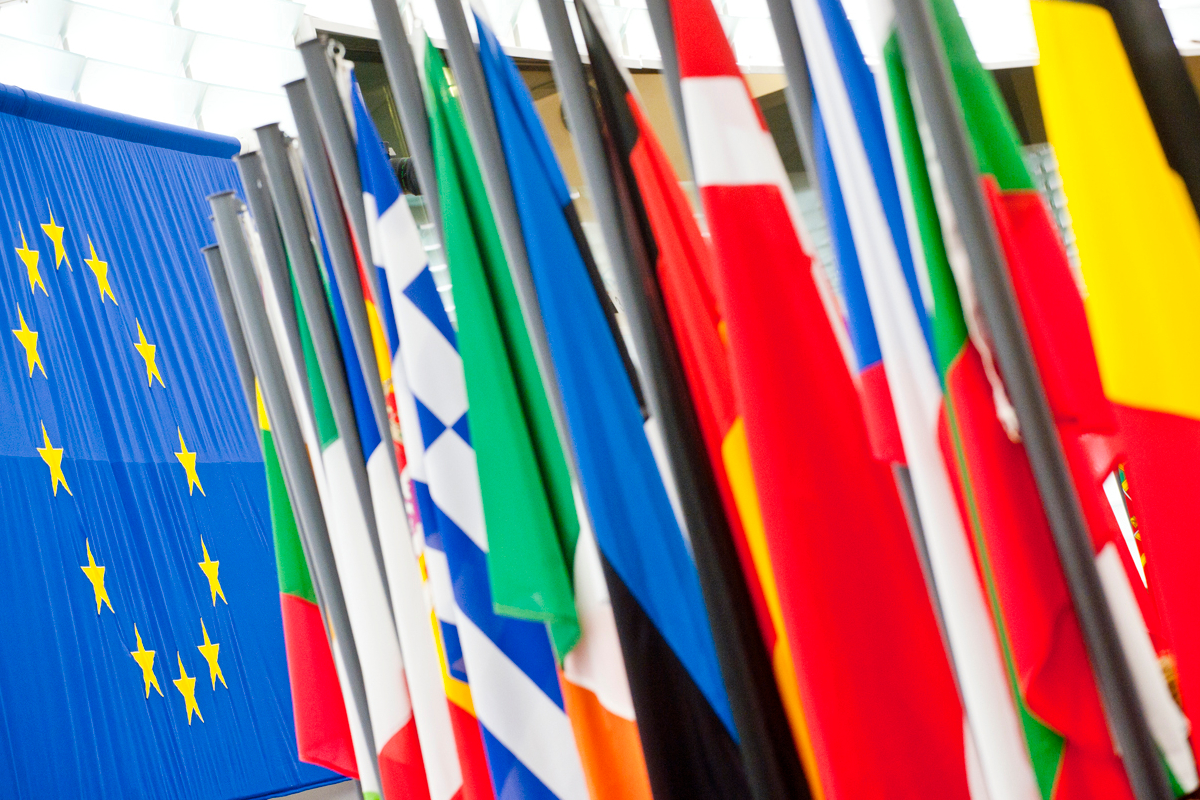News
Launched in 1999 and updated regularly, Statewatch News includes our own reporting and writing as well as articles, announcements, documents and analyses from elsewhere on civil liberties, EU policies and state practices. You can receive updates in your inbox by signing up to our mailing list, or use our RSS feed to get instant alerts.

EU: Concept Note on providing arms to Ukraine
"Guns, ammunition, rockets and fuel are on their way to your troops," announced the President of the European Council, Charles Michel, in an "address to the Ukranian people" on Sunday 27 February. The address came after the European Council agreed to an "assistance measure" that will provide €500 million worth of weapons to Ukraine using funds from the new European Peace Facility. A Concept Note produced by the Council, publicly available here, outlines the possible pros and cons of that assistance.

Frontex to boost border control efforts in Niger, Algeria and Libya
EU border agency Frontex is to step up its role in Niger, where a liaison officer will cooperate with EU military and security deployments to try to boost control over the borders between Niger, Algeria and Libya.

EU: Deportations: overview of readmission cooperation in key countries
An overview of cooperation on readmission agreements and arrangements with key countries, produced by the European Commission, show that the “external dimension” promoted under the EU’s Pact on Migration and Asylum treats non-cooperation with EU migration policy as worthy of sanction. Despite adopting a coercive outlook, these partnerships in which “readmission is an important component”, are described as “comprehensive, tailor-made and mutually beneficial”.

Tracking the Pact: EU eyes future Frontex deployments in Morocco
A revised draft action plan drawn up by the European Commission on a "comprehensive migration partnership" with Morocco now suggests that the North African country should be informed of "the potential benefits of a status agreement with the European Union" that would allow the deployment of Frontex officials on its territory.

EU to pile pressure on Iraq to cooperate with deportations
The EU is aiming to convince Iraqi authorities to withdraw their opposition to accepting deportations of Iraqi nationals, establish “smooth cooperation” on readmission and integrate “return, readmission and cooperation” into broader EU-Iraq cooperation on migration. This initiative fits within a wider punitive mechanism that includes monitoring cooperation on readmission by partner countries to promote the “external dimension of migration management”.

Frontex: border agency with ballooning budget in transparency tug of war
This week, Frontex has finally acted on its obligation to create a Public Register of Documents, while it is simultaneously the subject of a reportedly explosive report by the EU’s anti-fraud body – a report which is not (yet) public. The European Parliament’s civil liberties committee (LIBE) has demanded the report's publication.

Pushbacks in Greece: Commission calls for investigations and more border surveillance
The European Commission has proposed that the Council of the EU recommend that Greece "carry out independent investigations into all serious allegations of ill-treatment by the Hellenic Police and Hellenic Coast Guard at external borders" that are "capable of leading to the identification and punishment of those responsible."

Civil society calls on the EU to prohibit predictive and profiling AI systems in law enforcement and criminal justice
45 organisations, including Statewatch, are calling on EU decision-makers to prohibit the use of predictive and profiling "artificial intelligence" (AI) systems in the realm of law enforcement and criminal justice, a move that will "ensure full fundamental rights protection for people affected by AI systems, and in particular... prevent the use of AI to exacerbate structural power imbalances."

EU: Transparency: call for "transparent and easily accessible" trilogue negotiations
An open letter to European Commission officials signed by 40 organisations, including Statewatch, calls for transparency in the 'trilogue' negotiations between the Council, Parliament and Commission on two important pieces of legislation - the Digital Services Act and the Digital Markets Act. The proposals could "make digital services safer... protect and empower users, workers and small businesses," says the letter, but have been the subject of massive lobbying efforts by 'big tech', and trilogues are "held behind closed doors and access to documents relating to these discussions are often rejected."

EU: Ongoing rollout of biometric identification systems likely to exacerbate ethnic profiling
Attempts by the EU and its member states to step up identity controls by equipping police and immigration authorities with new biometric technologies are likely to see both ethnic minority citizens and non-citizens subjected to unwarranted intrusions into their everyday activities, argues a report published today by Statewatch.

EU-Africa: "Build bridges between people, not walls": civil society statement
A statement signed by networks and organisations representing hundreds of different groups, calling for a change in approach to EU-Africa relations and an end to the EU's "security approach to migration policies." The statement was published ahead of the European Union-African Union summit on 17 and 18 February.

EU: Interoperability: Letter confirms delays in implementation of “complex and challenging” plan
It is unsurprising that the creation of the EU’s ‘Big Brother’ system is facing obstacles and delays – the same happened with the Schengen Information System a decade ago. What is striking is that the all these new legal instruments will be implemented and interconnected simultaneously without leaving room to test their reliability and performance.

EU: Got a driving licence? You’re going in a police line-up
The Council of the EU is discussing plans to add driving licence data to an EU-wide network of police facial recognition systems, which would make the data of anyone who holds a driving licence available for cross-border searches by the police – in effect making them part of a “perpetual line-up”.

EU: New Council structures for "confidence in the Schengen Area"
Earlier this month, EU interior ministers agreed to establish a new 'Schengen Council' that will oversee controls at the external borders of, and migration within, the Schengen Area. A discussion paper recently circulated by the French Presidency of the Council, published here, indicates that a range of new structures are likely to be set up as part of this process, including the role of "Schengen Coordinator" and a "solidarity platform" to allow "the mobilisation of Member States’ resources at the external border... complementary to the action of Frontex".

EU: AI Act: Presidency compromise text on providers and users of high-risk AI systems
On 3 February, the French Presidency of the Council circulated a compromise text of Chapter 3 of the proposed Artificial Intelligence Act, covering with the obligations of users and providers of high-risk systems.

Belgium: Parliamentary scrutiny not over for Frontex
European Border and Coast Guard Agency to face hearing in the Federal Parliament in Brussels, with representatives of civil society organisations, on 22 February.

Appeal to the Italian Government, to UNHCR and IOM for the immediate withdrawal of the Italy-Libya Memorandum
An appeal signed by over 170 organisations and individuals, including Statewatch, calls on the Italian government to "immediately revoke the Memorandum of Understanding" signed with Libya, due to its facilitation of "models of exploitation and enslavement within which violence that constitutes crimes against humanity is systematically perpetrated." The appeal, organised by the Italian legal association ASGI, is open for further signatures.

EU: Legislators must put the brakes on big data plans for Europol
A letter signed by 23 human rights organisations, including Statewatch, has called on MEPs and EU governments to remove proposed new legal powers that would give EU policing agency Europol a licence to process huge quantities of personal data, including on vast numbers of innocent people. Under current plans, existing practices that have been found to be illegal by the EU's data protection authority would be legalised.

Resisting co-optation by Frontex: Italian academia and a Swiss referendum
There is growing awareness of and resistance to the role of EU border agency Frontex in human rights abuses, with a recent campaign at a university in Turin and a referendum in Switzerland seeking to halt different forms of cooperation with the agency.

EU: Tracking the Pact: Eurodac, Asylum and Migration Management, emergency measures, external cooperation
Documents recently circulated with the Council of the EU on the proposals to expand Eurodac, for an Asylum and Migration Management Regulation, "emergency measures" for use at the Polish and Lithuanian borders with Belarus, and the latest European Commission update on "the main external migration dialogues and processes since 2019."
Spotted an error? If you've spotted a problem with this page, just click once to let us know.